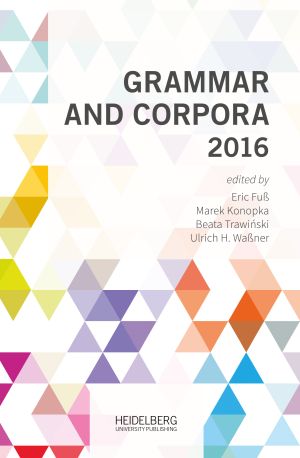Zitationsvorschlag
Lizenz (Kapitel)

Dieses Werk steht unter der Lizenz Creative Commons Namensnennung - Weitergabe unter gleichen Bedingungen 4.0 International.
Identifier (Buch)
Veröffentlicht
Aspectuality in Hungarian, German, and Slavic. A Parallel Corpus Study
Abstract The present paper compares verbal prefixation in Hungarian and German with the expression of aspect in Russian and Czech based on parallel movie subtitles. In order to account for interactions between lexical (actional) properties and aspect, four classes of verbs are considered: relative-statives, activities, gradual-terminatives, and total terminatives. The other factors examined with respect to their relation to aspect marking are: presence of a prefix, presence of a suffix, tense, mood, negation, transitivity (presence of an accusative argument). Results show that Hungarian patterns with Slavic for relative-statives and total-terminatives, while it is similar to German for activities and gradual-terminatives. This hybrid behavior of Hungarian is confirmed by the importance of the factors: in both Slavic languages, the presence of the prefix has the greatest influence on the aspect choice, followed by actionality, tense, and mood. In Hungarian and German, however, actionality is the most relevant factor; therefore, despite many similarities between Hungarian and Slavic, aspect cannot be viewed as grammatical in Hungarian.
Keywords Aspect, Slavic, Hungarian, prefix, parallel corpus






